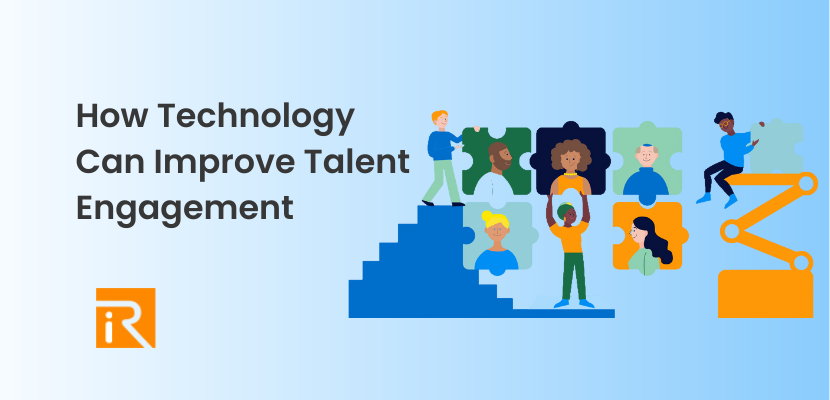In today’s competitive job market, it’s essential for companies to attract and retain top talent. However, traditional approaches to talent engagement are often outdated and ineffective. Fortunately, advances in technology have provided new opportunities for companies to engage with their employees and potential candidates. In this article, we will explore how technology can improve talent engagement and provide strategies for success.
The Benefits of Technology in Talent Engagement
Improving Communication
One of the most significant benefits of technology in talent engagement is the ability to improve communication between employees and employers. With tools like email, video conferencing, and instant messaging, companies can communicate with their employees in real-time, regardless of their location. This can lead to a more engaged workforce and a stronger company culture.
Streamlining Recruitment
Recruiting top talent is a time-consuming and costly process. However, with the help of technology, companies can streamline the recruitment process and save time and money. Tools like applicant tracking systems and online job boards can help companies find and screen candidates more efficiently.
Enhancing Employee Development
Another benefit of technology in talent engagement is the ability to enhance employee development. With e-learning platforms and online training programs, companies can provide their employees with ongoing learning opportunities to help them grow professionally. This can lead to a more engaged and productive workforce.
How Technology Can Improve Talent Engagement?
Using technology for talent engagement can have a significant impact on employee satisfaction and retention. Here are some ways that technology can improve talent engagement:
Personalization
Technology allows companies to personalize their communication with employees and potential candidates. By using tools like marketing automation software and AI-powered chatbots, companies can tailor their messaging to individual employees and candidates based on their preferences and behaviors.
Remote Work
Remote work has become increasingly popular in recent years, and technology has played a significant role in enabling this trend. By providing employees with the tools they need to work from home, companies can attract and retain top talent who value flexibility and work-life balance.
Gamification
Gamification is a growing trend in talent engagement. By using game-like elements in training programs and other employee development initiatives, companies can increase engagement and motivation among their employees.
Employee Feedback
Employee feedback is essential for talent engagement, but traditional feedback methods can be time-consuming and ineffective. Technology can help companies gather feedback from employees more efficiently through tools like online surveys and feedback platforms.
Top Strategies for Successful Talent Engagement Using Technology
Creating a Technology Roadmap
Creating a technology roadmap is essential for successful talent engagement. A technology roadmap outlines the technology tools and platforms that a company will use to engage with employees and potential candidates. This roadmap should align with the company’s overall business strategy and goals.
Investing in Employee Engagement Platforms
Investing in employee engagement platforms can help companies create a more engaged and productive workforce. These platforms provide employees with tools and resources to help them grow professionally and stay connected to their colleagues.
Offering Flexible Work Arrangements
Offering flexible work arrangements can help companies attract and retain top talent. By providing employees with the tools, they need to work from home or other remote locations, companies can accommodate employees’ changing needs and preferences.
Leveraging Social Media
Social media is an excellent tool for talent engagement. Companies can use social media platforms like LinkedIn and Twitter to showcase their employer brand, connect with potential candidates, and communicate with current employees.
Using Data Analytics
Data analytics can help companies measure the effectiveness of their talent engagement initiatives. By tracking metrics like employee satisfaction, retention rates, and engagement levels, companies can identify areas for improvement and make data-driven decisions to enhance their talent engagement strategies.
Leveraging Artificial Intelligence
Artificial intelligence (AI) is transforming the talent engagement landscape. AI-powered tools can help companies automate tasks, provide personalized recommendations to employees, and even predict future talent needs. By leveraging AI, companies can stay ahead of the competition and provide a seamless and engaging experience for their employees.
Encouraging Employee Feedback
Encouraging employee feedback is crucial for successful talent engagement. Companies should create an environment that fosters open communication and feedback. By soliciting feedback from employees and acting on their suggestions, companies can build trust and improve employee satisfaction.
Conclusion
In conclusion, technology has revolutionized the way companies engage with their employees and potential candidates. By leveraging technology tools and platforms, companies can improve communication, streamline recruitment, enhance employee development, and more. To achieve success in talent engagement, companies should create a technology roadmap, invest in employee engagement platforms, offer flexible work arrangements, leverage social media, use data analytics, and encourage employee feedback. By doing so, companies can attract and retain top talent, build a more engaged and productive workforce, and achieve their business goals.
FAQs
Q1. How can technology help companies attract and retain top talent?
A1. Technology can help companies attract and retain top talent by providing employees with the tools and resources they need to succeed, offering flexible work arrangements, and leveraging social media to showcase their employer brand.
Q2. Can technology improve employee development?
A2. Yes, technology can improve employee development by providing employees with e-learning platforms, online training programs, and other ongoing learning opportunities.
Q3. What is a technology roadmap, and why is it important for talent engagement?
A3. A technology roadmap outlines the technology tools and platforms that a company will use to engage with employees and potential candidates. It’s essential for talent engagement because it aligns with the company’s overall business strategy and goals.
Q4. How can companies use data analytics to improve talent engagement?
A4. Companies can use data analytics to measure the effectiveness of their talent engagement initiatives. By tracking metrics like employee satisfaction, retention rates, and engagement levels, companies can identify areas for improvement and make data-driven decisions.
Q5. How can companies leverage AI for talent engagement?
A5. Companies can leverage AI for talent engagement by automating tasks, providing personalized recommendations to employees, and even predicting future talent needs.
Q6. Why is employee feedback important for talent engagement?
A6. Employee feedback is important for talent engagement because it creates an environment that fosters open communication and feedback. By soliciting feedback from employees and acting on their suggestions, companies can build trust and improve employee satisfaction.

















